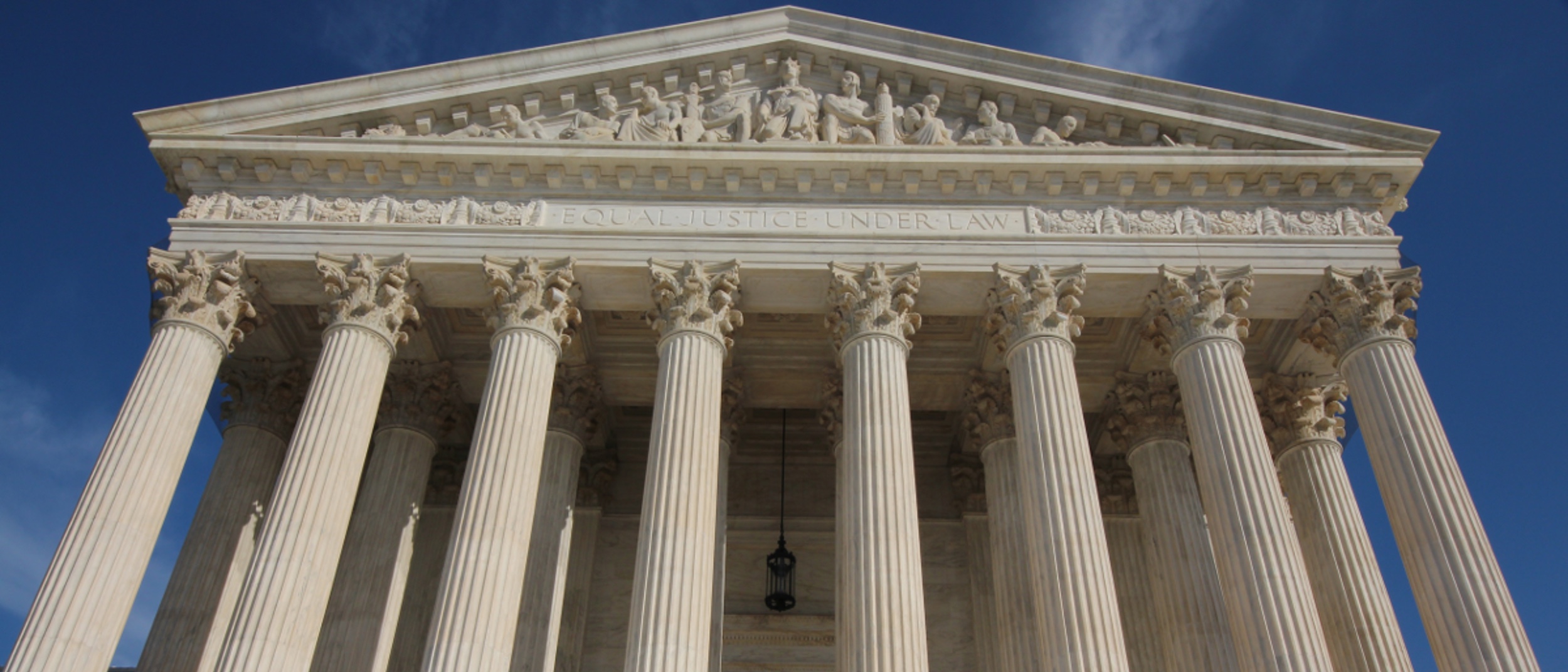Legal/Law/Criminal Justice and Reform
Supreme Court Upholds Ban On Firearms For Domestic Violence Offenders

(Flickr/Supreme Court Following Facade Restoration)
The Supreme Court ruled 8-1 Friday that a federal law restricting the subjects of domestic violence restraining orders from possessing firearms is consistent with the Second Amendment.
The case, United States v. Rahimi, stems from a constitutional challenge Zackey Rahimi brought to a federal statute he was convicted under, which prohibits individuals subject to domestic violence restraining orders from possessing firearms.
“When a restraining order contains a finding that an individual poses a credible threat to the physical safety of an intimate partner, that individual may—consistent with the Second Amendment—be banned from possessing firearms while the order is in effect,” Chief Justice John Roberts wrote in the majority ruling. “Since the founding, our Nation’s firearm laws have included provisions preventing individuals who threaten physical harm to others from misusing firearms. As applied to the facts of this case, Section 922(g)(8) fits comfortably within this tradition.”
Despite noting Rahimi is “hardly a model citizen” — he was involved in five shootings between December 2020 and January 2021 — the Fifth Circuit previously agreed with his challenge to the law. It found the statute did not fit “within our Nation’s historical tradition of firearm regulation,” the standard set by the Supreme Court for firearm regulations in its 2022 New York State Rifle & Pistol Association, Inc. v. Bruen ruling.
Roberts wrote that “some courts have misunderstood the methodology of our recent Second Amendment cases.”
“These precedents were not meant to suggest a law trapped in amber,” he wrote, noting the law must “comport with the principles underlying the Second Amendment, but it need not be a ‘dead ringer’ or a ‘historical twin.'”
The government argued that individuals subject to protective orders “pose an obvious danger to their intimate partners,” noting that protective orders must still “satisfy strict requirements” to strip individuals of their firearms.
Justice Clarence Thomas wrote in his dissent that “not a single historical regulation justifies the statute,” which he argued “violates the Second Amendment.”
“This case is not about whether States can disarm people who threaten others,” he wrote, noting Texas could have convicted Rahimi. “States have a ready mechanism for disarming anyone who uses a firearm to threaten physical violence: criminal prosecution.”
“Instead, the question is whether the Government can strip the Second Amendment right of anyone subject to a protective order—even if he has never been accused or convicted of a crime,” Thomas continued. “It cannot.”
The Supreme Court struck down on June 14 a Trump administration-era ban on bump stocks, finding the Bureau of Alcohol, Tobacco, Firearms and Explosives (ATF) exceeded its authority by issuing a rule classifying bump stock devices as machine guns.
Featured Image Credit: Flickr/Supreme Court Following Facade Restoration
All content created by the Daily Caller News Foundation, an independent and nonpartisan newswire service, is available without charge to any legitimate news publisher that can provide a large audience. All republished articles must include our logo, our reporter’s byline and their DCNF affiliation. For any questions about our guidelines or partnering with us, please contact [email protected].

